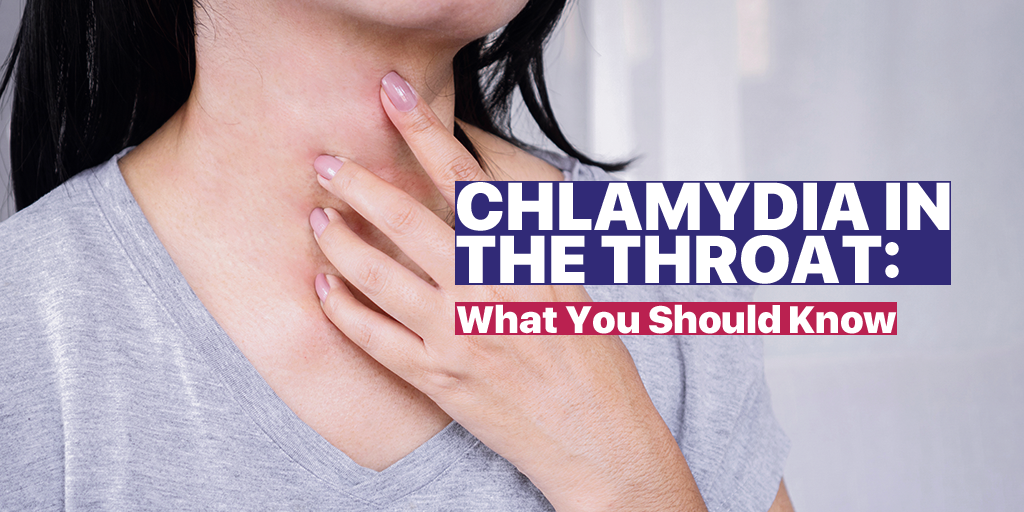Chlamydia in Throat: Hidden Concern
Chlamydia is a well-known sexually transmitted infection, but did you know it can also affect the throat? In this comprehensive guide, we’ll explore chlamydia in the throat, including its causes, transmission, and common symptoms.
Causes and Transmission of Chlamydia in the Throat
Understanding how chlamydia can manifest in the throat is crucial. Chlamydia in the throat is typically caused by the bacterium Chlamydia trachomatis, the same microorganism responsible for genital chlamydia. It’s primarily transmitted through oral sex with an infected partner. Safe sexual practices are essential in preventing this form of chlamydia.

chlamydia in throat
Symptoms and Signs of Chlamydia in the Throat
Recognizing the symptoms of chlamydia in the throat can be challenging, as they may not always be evident. Common signs include a persistent sore throat, discomfort, and occasionally, difficulty swallowing. However, many cases are asymptomatic, underscoring the importance of regular testing if you engage in oral sex.
Diagnosis and Testing for Chlamydia in the Throat
Diagnosing chlamydia in the throat involves specific tests, such as throat swabs, to detect the presence of the bacterium. It’s crucial to seek testing if you have been sexually active, especially if you’ve engaged in oral sex with multiple partners. Home testing kits and clinic-based tests are readily available options.
Treatment and Management of Chlamydia in the Throat
If you’ve tested positive for chlamydia in the throat, don’t worry; it’s treatable. Antibiotics, prescribed by a healthcare provider, are typically effective in clearing the infection. It’s crucial to complete the full course of antibiotics as directed, even if symptoms improve. Additionally, it’s advisable to notify sexual partners so they can seek testing and treatment as well.
Complications and Risks Associated with Untreated Chlamydia in the Throat
Untreated chlamydia in the throat can lead to more severe complications. The infection may spread to other parts of the body, potentially affecting the genitals, rectum, or eyes. In women, it can lead to pelvic inflammatory disease (PID), while in men, it can cause epididymitis. Prompt treatment is essential to prevent these complications.
Prevention Strategies: Safeguarding Your Sexual Health
Preventing chlamydia in the throat involves practicing safe sex. Here are some key prevention strategies:
Use Barrier Methods:
Consistently use condoms and dental dams during oral sex to reduce the risk of transmission.
Regular Testing:
If you are sexually active, including oral sex, regular testing for STIs is crucial. This allows for early detection and treatment.
Communication:
Open and honest communication with sexual partners is essential. Discuss your sexual history and STI testing to make informed decisions together.
Frequently Asked Questions (FAQs) About Chlamydia in the Throat
1. What is chlamydia in the throat?
Chlamydia in the throat is a type of chlamydia infection that affects the throat when the bacterium Chlamydia trachomatis is transmitted through oral sex.
2. What are the common symptoms of chlamydia in the throat?
Common symptoms may include a sore throat, discomfort, and difficulty swallowing. However, many cases are asymptomatic.
3. How is chlamydia in the throat diagnosed?
Diagnosis involves specific tests, like throat swabs, to detect the presence of chlamydia. Testing is recommended, especially if you engage in oral sex.
4. Is chlamydia in the throat curable?
Yes, chlamydia in the throat is curable with antibiotics. Timely treatment is essential to clear the infection.
5. Can chlamydia in the throat be asymptomatic?
Yes, chlamydia in the throat can often be asymptomatic, meaning no noticeable symptoms are present.
6. How is chlamydia in the throat different from genital chlamydia?
Chlamydia in the throat is caused by the same bacterium but affects the throat instead of the genital area. It’s typically transmitted through oral sex.
7. Can chlamydia in the throat be transmitted through kissing?
While the risk is low, chlamydia in the throat is primarily transmitted through oral sex, not kissing.
8. How often should I get tested for chlamydia in the throat?
If you are sexually active, including oral sex, it’s advisable to get tested regularly. Discuss the frequency with your healthcare provider.
9. What are the potential complications of untreated chlamydia in the throat?
Untreated chlamydia in the throat can lead to complications such as spreading to other body parts and causing conditions like pelvic inflammatory disease (PID).
10. What are the key prevention strategies for chlamydia in the throat?
Prevention involves safe sexual practices, including using barrier methods, regular testing, and open communication with sexual partners.
Conclusion
In conclusion, chlamydia in the throat is a significant concern, but with awareness, regular testing, and safe sexual practices, you can protect your sexual health. Remember that early detection and treatment are key to preventing complications and maintaining your well-being.




